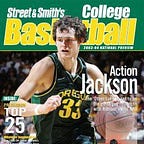The Fall Guy and resigning oneself with the troubling onset of facial fabrication technology
There’s more to this rock-em, sock-em blockbuster than meets the eye
At first glance, or in this case on first viewing, you could be forgiven for missing most of what sets apart The Fall Guy, David Leitch’s new action-flick/love letter to stunt work. That’s where Leitch got his start in the biz…seriously, check out his Wiki page: dude was prolific.
It’s subtle, the way he goes about presenting what, when you step out of the IV drip of part-of-the-plan information download, becomes a terrifying prospect for the future of filmmaking and something that, like anything cultural, will inevitably bleed into society at large.
Just as I found myself Matrix-glitching during The Beekeeper, which referenced MKUltra and other (I had thought) fringe conspiracy theories, here comes The Fall Guy with Leitch sounding the alarm rather forcefully over facial recognition technology and the rather frightening possibilities it holds for career criminals (ahem, Hollywood producers) looking for new ways to further their nefarious ends.
The increasingly cynical side of myself sniffs at this and thinks, If they’re putting this kind of stuff in Hollywood action movies, then they—whoever ‘they’ is—must be completely unworried that it will spark any sort of backlash. Maybe the people really are that asleep. Maybe the technology is already so mature that to worry over it would be like fretting over the A-Bomb in the ’60s. It’s here, bitch; you might as well learn to live with it, maybe even love it.
Leitch grounds The Fall Guy (apparently there was a TV series of the same name in the ’80s) in Ryan Gosling’s stunt man everyman, thanklessly throwing his body this way and that to make the A-list star look “good.” Of course, said A-lister becomes involved in the afore-mentioned criminal plot.
As Leitch and screenwriter Drew Pearce show, the star (played by Aaron Taylor-Johnson) is an airhead almost completely motivated by his outsized ego, and burnishing his brand. Authenticity is a key component of that brand.
He doesn’t wish Gosling ill; he’s just jealous that he can’t take credit for doing his own stunts. But with the right technology, soon he’ll be able to do just that! Slap his face onto Gosling’s body and Voila! He won’t have to worry about being called a liar when he boasts at a party that yes, that is in fact him throwing himself across the screen.
It’s the producer who’s the one to look out for, the one with the money pulling the strings. This creates a scenario quite similar (art imitating life I guess) to what I feel reality has become, at least concerning the way I view the world.
All the decisions seem to be made post-democratically at this point; the will of the people followed only when it suits the agenda of the powers-that-be.
There’s one rung of resistance that says, well, you should try and fight back. Get into a position of power where you can begin dictating terms you find more agreeable. Start local, and all that.
But therein lies the problem, for me. I keep thinking of Jim Caviezel’s character in The Thin Red Line, who in the book was a bit player but, through Terrence Malick’s unequivocal genius, became the heart and soul of the film. He doesn’t want to fight; he just wants to live. He’s a man of unbending virtue, however, so when he is picked back up from his (latest) AWOL escapade (heh), he fulfills his duties, up to the end, with aplomb.
I empathize with Caviezel’s character in that I want no say in the grand scheme of things; there’s that great bit in Hegel about what happens after the Revolution. The new people in power just find a new way to become corrupted by it and spend most of their time telling other people what to do. So you do the best you can, carving out time for yourself.
This is Gosling and, to a rather similar extent, Emily Blunt, in The Fall Guy. Blunt plays the director of the film Gosling is called in to do stunt work for. She’s worked her way up from camera operator, but she quickly finds that she has next-to-no-say, creatively, in her maiden voyage at the helm. All the decisions seem to come from the financial power—the Producer.
Thrown into that dystopia, you just do your best. Gosling and Blunt make their peace with it, and even have some fun while doing so. They even find a way to fall in love. And I think that’s what I find most endearing, and heartening, about the film. All the self-referential, self-aware bullshit (Leitch did Deadpool 2, so it’s unsurprising that pop-cultural references abound) falls away in the face of truth.
An eternal theme rings true and clear. Men and women will keep finding ways to fall in love. They’ll make their peace with whatever dystopia, facial recognition-abetted or otherwise, they have to wade their way through.
They’ll just find a way to live.
